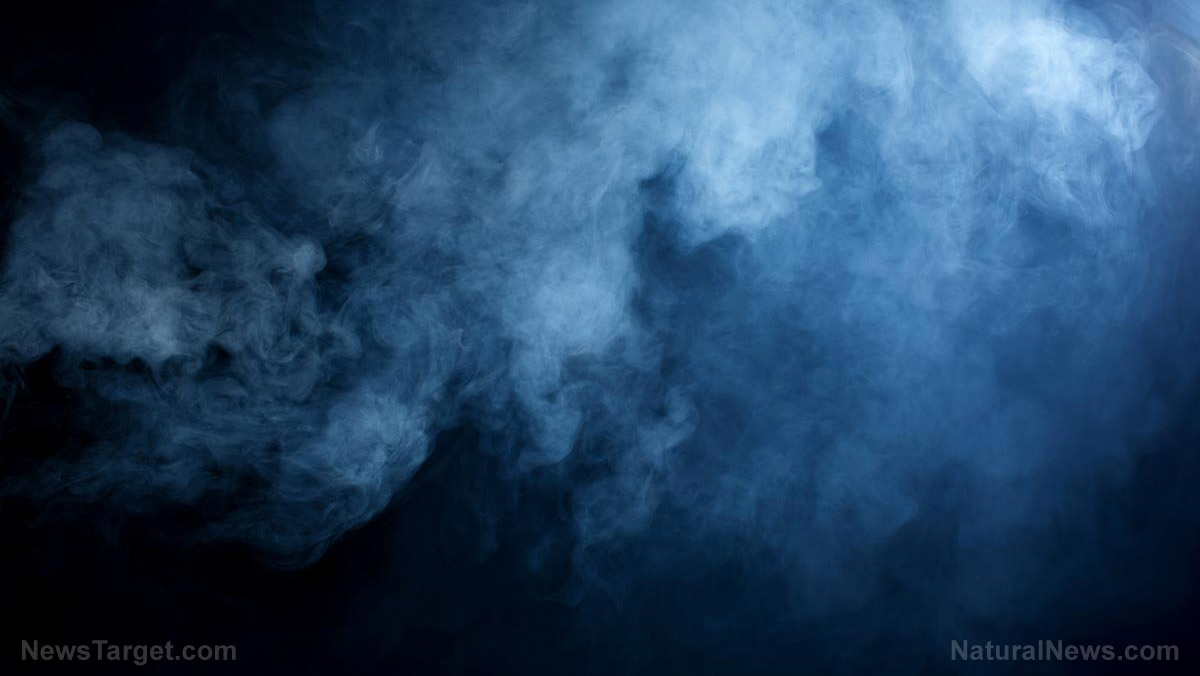
- A dense, chemical-smelling fog has been reported across multiple U.S. states, including Texas, Florida and the Midwest, causing flu-like symptoms such as coughing, sore throats, eye irritation and stomach cramps among residents after brief exposure.
- Videos and testimonials on platforms like TikTok and X have fueled conspiracy theories, with some linking the fog to bioweapons, government experiments, or even connections to past events like "Operation Sea-Spray" and recent drone sightings.
- Experts attribute the fog to natural weather patterns, explaining that it absorbs pollutants like sulfur and nitrogen oxides, which intensify odors and irritate respiratory systems, particularly for those with preexisting conditions like asthma.
- The fog’s lingering presence, visible "white particles," and chemical odor have alarmed residents, with some finding residue clogging their air filters, further heightening concerns.
- While meteorologists emphasize the fog’s natural origins, the widespread fear and speculation reflect a growing distrust and skepticism, blending science, fear and human curiosity into an evolving narrative. Experts advise caution, especially for those with respiratory issues, during dense fog conditions.
A mysterious fog with a distinct "chemical smell" has swept across multiple states, leaving Americans alarmed and sparking a wave of concern. Residents from Texas to Florida and beyond have reported flu-like symptoms after brief exposure to the fog, which has been described as unusually dense and lingering. While experts attribute the phenomenon to natural weather patterns and seasonal pollutants, social media users are speculating about everything from bioweapons to government experiments.
The fog first appeared in late December, with reports emerging from states including Texas, Wisconsin, Iowa, Maryland, Virginia, West Virginia, Nebraska, Kansas, Oklahoma, North Dakota, Florida and Minnesota. Locals have taken to social media to share videos and testimonials, describing symptoms such as coughing, sore throats, congestion, eye irritation, lethargy and stomach cramps.
One Florida resident told DailyMail.com that she felt ill after just 10 minutes outside. "Within about an hour, I kept sneezing over and over for about three hours, and my eyes were really puffy," she said. "I got very warm and I felt like I had a fever, and my stomach was cramping." Similar accounts have flooded platforms like TikTok, where users like "Rusky" from the Pacific Northwest described symptoms including a sore throat, coughing and fatigue.
The fog’s unusual characteristics – its chemical odor, lingering presence and visible "white particles" – have fueled speculation. Some residents have even checked their air filters, only to find them clogged with residue. A North Dakota resident shared a video comparing a recently changed filter to one covered in grime, warning others to "beware the fog."
David Bamber, a resident of St. Petersburg, Florida, posted a TikTok video walking through the dense fog. He noted that while normal fog dissipates, this fog lingers late into the night. "The weirdest part is the taste and smell," he said. "It smells like after you set off a bunch of fireworks, and the taste of the air is toxic. It is super weird."
People are concerned
Despite the widespread concern, experts have dismissed claims of the fog being anything other than a natural weather event. Rudolf Husar, an atmospheric scientist at Washington University, explained that fog can absorb pollutants like sulfur oxides and nitrogen oxides, which are then trapped in water droplets. This process can intensify odors and irritate the respiratory system, especially in individuals with preexisting conditions like asthma.
However, the scientific explanations have done little to quell the growing wave of conspiracy theories. Social media users have drawn parallels to "Operation Sea-Spray," a 1950 U.S. Navy experiment that sprayed bacteria over San Francisco to test the city’s vulnerability to bioweapons. The experiment resulted in severe illnesses and at least one death. Others have speculated that the fog is linked to the mysterious drone sightings reported in December, with some suggesting the drones may have released chemicals into the air.
Theories range from government-led experiments to terrorist plots, with some users dubbing the phenomenon "Fogvid-24." One X user wrote, "It tastes and smells like after setting off a lot of fireworks. That sulfur smell... freaking me out." Another speculated, "This fog isn’t natural…there’s something off about it. Too dense. Too controlled. I’ve seen enough to recognize patterns, and this feels engineered."
While the fog’s appearance and effects are unsettling, meteorologists emphasize that fog is a common occurrence during the fall and winter months. The visible particles are simply water droplets or ice crystals, made more apparent when illuminated by light. The chemical smell, while unpleasant, is likely due to pollutants already present in the air, which are absorbed and concentrated by the fog.
Despite the rational explanations, the fear and speculation surrounding the fog highlight a broader trend of distrust and skepticism. As Americans grapple with the unknown, the "chemical fog" serves as a reminder of the power of nature – and the human tendency to seek answers, even in the absence of evidence.
For now, experts advise caution for those with respiratory conditions and recommend staying indoors during periods of dense fog. As the mystery unfolds, one thing is clear: the fog has left an indelible mark on the American psyche, blending science, fear and speculation into a story that continues to evolve.
Sources include:
Please contact us for more information.




















